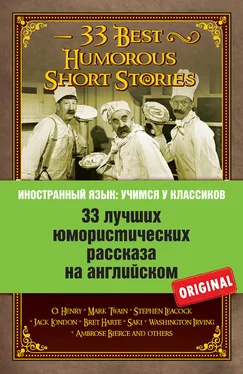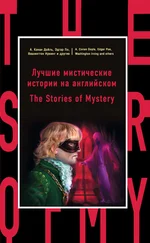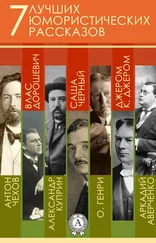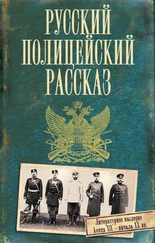‘Well,’ said Tommy, wonderingly, ‘that’s, the first time I ever knew a burglar to give a college yell when he was burglarizing a house, even in a story.’
‘That’s one on you,’ said the burglar, with a laugh. ‘I was practising the dramatization. If this is put on the stage that college touch is about the only thing that will make it go.’
Tommy looked his admiration.
‘You’re on, all right,’ he said.
‘And there’s another mistake you’ve made,’ said the burglar. ‘You should have gone some time ago and brought me the $9 gold piece your mother gave you on your birthday to take to Bessie.’
‘But she didn’t give it to me to take to Bessie,’ said Tommy, pouting.
‘Come, come!’ said the burglar, sternly. ‘It’s not nice of you to take advantage because the story contains an ambiguous sentence. You know what I mean. It’s mighty little I get out of these fictional jobs, anyhow. I lose all the loot, and I have to reform every time; and all the swag I’m allowed is the blamed little fol-de-rolsand luck-pieces that you kids hand over. Why, in one story, all I got was a kiss from a little girl who came in on me when I was opening a safe. And it tasted of molasses candy, too. I’ve a good notion to tie this table cover over your head and keep on into the silver-closet.’
‘Oh, no, you haven’t,’ said Tommy, wrapping his arms around his knees. ‘Because if you did no editor would buy the story. You know you’ve got to preserve the unities.’
‘So’ve you,’ said the burglar, rather glumly. ‘Instead of sitting here talking impudence and taking the bread out of a poor man’s mouth, what you’d like to be doing is hiding under the bed and screeching at the top of your voice.’
‘You’re right, old man,’ said Tommy, heartily. ‘I wonder what they make us do it for? I think the S. P. C. C. ought to interfere. I’m sure it’s neither agreeable nor usual for a kid of my age to butt in when a full-grown burglar is at work and offer him a red sled and a pair of skates not to awaken his sick mother. And look how they make the burglars act! You’d think editors would know – but what’s the use?’
The burglar wiped his hands on the tablecloth and arose with a yawn.
‘Well, let’s get through with it,’ he said. ‘God bless you, my little boy! you have saved a man from committing a crime this night. Bessie shall pray for you as soon as I get home and give her her orders. I shall never burglarize another house – at least not until the June magazines are out. It’ll be your little sister’s turn then to run in on me while I am abstracting the U. S. 4 per cent. from the tea urn and buy me off with her coral necklace and a falsetto kiss.’
‘You haven’t got all the kicks coming to you,’ sighed Tommy, crawling out of his chair. ‘Think of the sleep I’m losing. But it’s tough on both of us, old man. I wish you could get out of the story and really rob somebody. Maybe you’ll have the chance if they dramatize us.’
‘Never!’ said the burglar, gloomily. ‘Between the box office and my better impulses that your leading juveniles are supposed to awaken and the magazines that pay on publication, I guess I’ll always be broke.’
‘I’m sorry,’ said Tommy, sympathetically. ‘But I can’t help myself any more than you can. It’s one of the canons of household fiction that no burglar shall be successful. The burglar must be foiled by a kid like me, or by a young lady heroine, or at the last moment by his old pal, Red Mike, who recognizes the house as one in which he used to be the coachman. You have got the worst end of it in any kind of a story.’
‘Well, I suppose I must be clearing out now,’ said the burglar, taking up his lantern and bracebit.
‘You have to take the rest of this chicken and the bottle of wine with you for Bessie and her mother,’ said Tommy, calmly.
‘But confound it,’ exclaimed the burglar, in an annoyed tone, ‘they don’t want it. I’ve got five cases of Chateau de Beychsvelle at home that was bottled in 1853. That claret of yours is corked. And you couldn’t get either of them to look at a chicken unless it was stewed in champagne. You know, after I get out of the story I don’t have so many limitations. I make a turn now and then.’
‘Yes, but you must take them,’ said Tommy, loading his arms with the bundles.
‘Bless you, young master!’ recited the burglar, obedient. ‘Second-Story Saul will never forget you. And now hurry and let me out, kid. Our 2,000 words must be nearly up.’
Tommy led the way through the hall toward the front door. Suddenly the burglar stopped and called to him softly: ‘Ain’t there a cop out there in front somewhere sparking the girl?’
‘Yes,’ said Tommy, ‘but what —’
‘I’m afraid he’ll catch me,’ said the burglar. ‘You mustn’t forget that this is fiction.’
‘Great head!’ said Tommy, turning. ‘Come out by the back door.’
The Adventures of Shamrock Jolnes
I am so fortunate as to count Shamrock Jolnes, the great New York detective, among my muster of friends. Jolnes is what is called the ‘inside man’ of the city detective force. He is an expert in the use of the typewriter, and it is his duty, whenever there is a ‘murder mystery’ to be solved, to sit at a desk telephone at headquarters and take down the messages of ‘cranks’ who ‘phone in their confessions to having committed the crime.
But on certain ‘off’ days when confessions are coming in slowly and three or four newspapers have run to earthas many different guilty persons, Jolnes will knock about the town with me, exhibiting, to my great delight and instruction, his marvellous powers of observation and deduction.
The other day I dropped in at Headquarters and found the great detective gazing thoughtfully at a string that was tied tightly around his little finger.
‘Good morning, Whatsup,’ he said, without turning his head. ‘I’m glad to notice that you’ve had your house fitted up with electric lights at last.’
‘Will you please tell me,’ I said, in surprise, ‘how you knew that? I am sure that I never mentioned the fact to any one, and the wiring was a rush order not completed until this morning.’
‘Nothing easier,’ said Jolnes, genially. ‘As you came in I caught the odour of the cigar you are smoking. I know an expensive cigar; and I know that not more than three men in New York can afford to smoke cigars and pay gas bills too at the present time. That was an easy one. But I am working just now on a little problem of my own.’
‘Why have you that string on your finger?’ I asked.
‘That’s the problem,’ said Jolnes. ‘My wife tied that on this morning to remind me of something I was to send up to the house. Sit down, Whatsup, and excuse me for a few moments.’
The distinguished detective went to a wall telephone, and stood with the receiver to his ear for probably ten minutes.
‘Were you listening to a confession?’ I asked, when he had returned to his chair.
‘Perhaps,’ said Jolnes, with a smile, ‘it might be called something of the sort. To be frank with you, Whatsup, I’ve cut out the dope. I’ve been increasing the quantity for so long that morphine doesn’t have much effect on me any more. I’ve got to have something more powerful. That telephone I just went to is connected with a room in the Waldorf where there’s an author’s reading in progress. Now, to get at the solution of this string.’
After five minutes of silent pondering, Jolnes looked at me, with a smile, and nodded his head.
‘Wonderful man!’ I exclaimed; ‘already?’
‘It is quite simple,’ he said, holding up his finger. ‘You see that knot? That is to prevent my forgetting. It is, therefore, a forget-me-knot. A forget-me-not is a flower. It was a sack of flour that I was to send home!’
Читать дальше
Конец ознакомительного отрывка
Купить книгу












